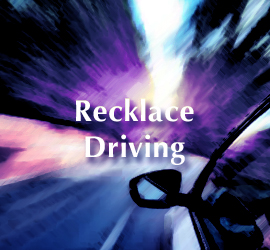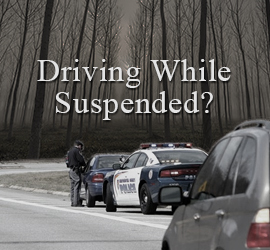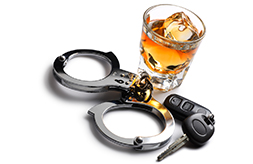
CONTROLLED DANGEROUS SUBSTANCE CDS-DRUG DWI-DUI. EXPERIENCED CRIMINAL LAWYER DEFENDS DRUG DWI DUI CHARGES
Every DWI or DUI lawyer knows that N.J.S.A. 39:4-50 prohibits operation of a motor vehicle on the roads of New Jersey while impaired by either intoxicating liquor (alcohol) or hallucinogenic drugs (controlled dangerous substances, i.e., CDS, i.e., benzodiazepines, (think xanax, valium, alprolazam), cocaine, opioids (think oxycontin, heroine, pain killers), prescribed or not prescribed, marijuana, prescribed or not prescribed). No matter whether one has a license to possess and ingest marijuana (pursuant to the New Jersey Medicinal Marijuana Program) or has obtained a prescription to possess and ingest any other drug, one is prohibited by Law from operating a vehicle, if the substance one has ingested has caused impairment, i.e., caused the operator to be unable to operate the motor vehicle in a competent manner. If you have been charged with drug CDS DWI or DUI you need to retain an experienced attorney to defend you.
As a criminal lawyer, I recognize that there exists a distinction between drug CDS possession and operation of a motor vehicle while impaired by drugs CDS. If one has obtained a valid medicinal marijuana license from the State of New Jersey, possession and ingestion of marijuana (or any other prescribed drug-CDS) is not a criminal offense. Under those circumstances one can lawfully possess and ingest controlled dangerous substance CDS (that is prescribed by a physician) as long as one is not operating a motor vehicle while impaired by the ingestion of the controlled dangerous substance (CDS), i.e. drug.
A lawyer can advise that if one is in possession of, or under the influence of , any scheduled controlled dangerous substance CDS, including marijuana, without first having obtaining a New Jersey Medicinal Medical Marijuana License or a physician’s prescription, possession and/or ingestion under any circumstances is a criminal offense. But any experienced attorney will advise that if one is operating a vehicle while impaired by any CDS-drug, including marijuana, whether prescribed, licensed, or not, and impairment is proven, one has exposure for DWI or DUI charges for violation of N.J.S.A. 39:4-50 (DWI-DUI Statute).
HOW DOES THE STATE DETERMINE IF I AM IMPAIRED BY CONTROLLED DANGEROUS SUBSTANCE CDS-DRUG-MARIJUANA?
As in every DWI-DUI matter, an experienced attorney will advise that the police must first establish probable cause to believe one is operating his or her motor vehicle on the roads of New Jersey while committing an offense of some sort. Lawyers know that police will then try to bootstrap into an operating while impaired by some substance or by consumption of alcohol in excess of the amount allowed by law charge. Over the many years of my career as a lawyer, I have learned that a police officer can establish probable cause by finding or alleging a traffic violation and then using the observation of a violation to pull the operator over. Attorneys know that a police officer can also rely on the observations of other witnesses who have called in to report observation of an impaired driver (think 911 callers or occupants/victims of an automobile collision with whom the accused’s motor vehicle has collided). As the officer approaches the accused’s motor vehicle he or she may smell the odor of alcohol, of burnt or raw marijuana, may observe drugs and/or paraphernalia in plain view inside the motor vehicle, etc…(think pipes, syringes, etc.. in the center console). We attorneys have seen many police reports documenting probable cause upon which police can justify conducting a search of the vehicle.
If the police officer believes he has established probable cause that an offense likely has been committed, he will ask the operator of the motor vehicle to step out of the motor vehicle and perform divided attention tests also referred to as Standardized Field Sobriety Testing (SFST) which are balance and coordination tests designed to determine if the operator’s blood alcohol content is above .10%, i.e., a legal standard for alcohol impairment. These tests consist of the horizontal gaze nystagmous (HGN), heel to toe touch walk, single raise test. If the police officer believes that the motor vehicle’s operator has demonstrated that he or she is impaired by “clues” establishing failure to adequately perform the divided attention testing, he will require the motor vehicle operator to undergo Alcotest breath testing to determine whether alcohol is the cause of the impairment.
If the Alcotest testing is not performed by the motor vehicle operator, he or she will be charged with Refusal and DWI-DUI. New Jersey does not reward drivers for not allowing Law Enforcement to measure alcohol content.
This where it gets tricky even for an attorney. My experience as a DWI or DUI lawyer has shown that many times if the Alcotest results show no alcohol ingestion but the police officer believes the suspect exhibits signs of impairment, he will switch gears to establish CDS-drug impairment. He will first request that the operator of the motor vehicle give a urine sample which will be tested by the laboratory to establish the presence of the drug in the body. Interestly, an operator of a motor vehicle can refuse to give a urine sample without exposure for Refusal charges as a consequence. As an attorney I am always glad when the client refuses to give the urine sample.
So how is CDS-drug impairment established? Let’s assume for purposes that the operator of the motor vehicle gives a urine sample. That sample is sent to the State Police Lab where lab technicians test it for the presence of CDS-drugs-but do not test for quantity. As an experienced criminal lawyer, my professional opinion is that labs are a red herring because quantity of CDS cannot ever be established. Only the presence of the CDS in the urine can be shown.
Whether the (suspect) has ingested sufficient quantity to establish impairment (at the time he or she was operating the motor vehicle) beyond a reasonable doubt is determined by observations made by a police officer who has completed Drug Recognition Expert (DRE) training. The drug recognition expert DRE conducts a battery of balance and coordination tests, while observing the suspect’s pulse rate and pupil size to determine whether the suspect is impaired by analgesic narcotics (opioids), benzodiazepimes (xanax, alprazolam, alprozolam), marijuana, and so forth. The DRE will then use his examination findings to generate an expert report for the State which documents CDS-drug impairment. As an experienced criminal lawyer my professional opinion is that DRE testing is unreliable and many DRE opinions are merely guesses dressed up as conclusions supported by fact. Drug recognition experts DRE are merely police officers who have attended a six hour course on how to detect impairment by comparing normal puls rates and pupil sizes to that of subject defendants. Virtually every attorney I have spoken with agrees that the entire practice is an unreliable method of detecting impairment.
As an attorney I know that the establishment that some CDS-drugs existed in the urine at the time of testing is not relevant if the likely hood of impairment at the time the suspect was operating the motor vehicle is not proven beyond a reasonable doubt. As an experienced DWI or DUI lawyer, I always make this the an issue–because some drugs, like marijuana, can take up to twenty five (25) days after last ingestion to become undetectable in the urine. An attorney needs to understand that in order to successfully defend DWI or DUI cases.
So as an attorney I believe the legal standards applied to operation of a motor vehicle in New Jersey while impaired by CDS-drugs are imprecise and that assumptions made by drug recognition experts are largely junk science. Police officers are predisposed to suspect and charge drug CDS use and DREs are likewise predisposed to find CDS-drug impairment, even if they must guess as to whether the impairment was present at the time the operator was operating the vehicle. Furthermore, judges are not always “open minded” about weighing evidence which establishes reasonable doubt.
DO I NEED AN ATTORNEY TO REPRESENT ME?
Yes.
Any experienced DWI or DUI attorney will tell you that these matters are too complex and the potential penalties if convicted too severe to proceed without representation of a lawyer. If you want to avoid loss of your driving privileges and you want to avoid the imposition of possible jail time and you want to avoid monetary penalties, imposition of increased insurance premiums, Motor Vehicle Commission surcharges, you need to retyain a lawyer to defend.
The end result of most DWI-DUI cases is the imposition of loss of driver’s license for not less than seven (7) months on a first offense, possible jail time of up to thirty (30) days on a first offense and significant monetary penalties.
If you have been charged with a CDS-drug DWI-DUI, please contact me for a free initial consultation regarding the circumstances of your case and how (if retained) I can possibly minimize your exposure.
I can be reached at (732)-337-7922.
For more information on what constitutes DWI-DUI in New Jersey and what the mandatory sentencing guidelines are if convicted, I recommend actually reading N.J.S.A. 39:4-50, entitled Driving While Intoxicated.




